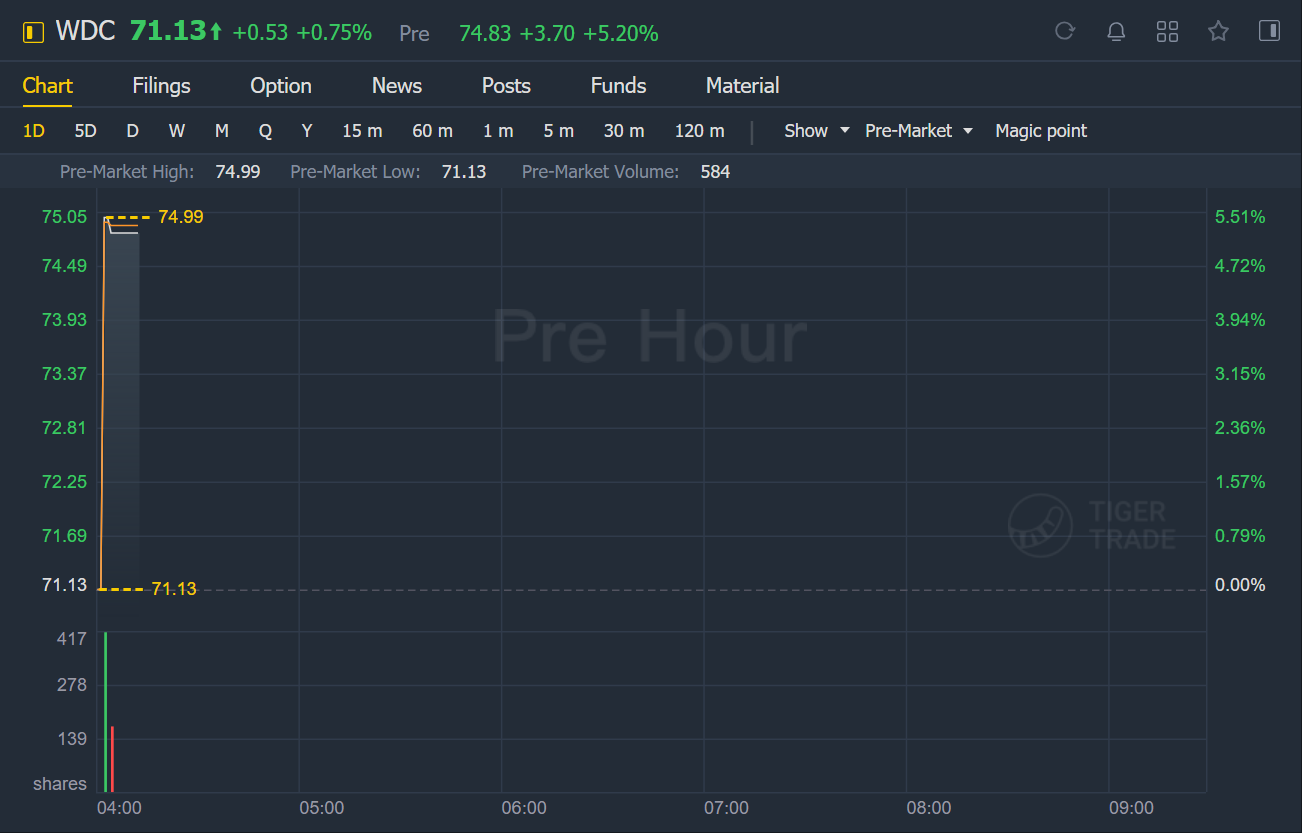Western Digital rose 5% in premarket trading, and its third-quarter net profit increased by 1059% year-on-year.
Western Digital (ticker: WDC) posted revenue of $4.1 billion in the quarter ended March 31, down 1% from a year ago but ahead of the guidance range of $3.8 billion to $4.05 billion. Non-GAAP profits were $1.02 a share, well above the company’s forecast of 55 cents to 75 cents.
The company said the strong results reflected “increasing momentum” for both “energy assisted drives” and current generation solid-state drives, as well as “improving NAND flash pricing trends.”
For the June quarter, Western sees revenue of $4.4 billion to $4.6 billion, with non-GAAP profits of $1.30 to $1.60 a share, above the Street consensus forecast at $4.3 billion and $1.02 a share.
Western said its client devices business had revenue of $2 billion, up 10% from a year ago, driven by “continued strength in notebook and desktop PC demand, as well the ramp of new game consoles.
Data center devices had revenue of $1.2 billion, down 19%, although the company said it had sequential growth with its NVMe (nonvolatile memory express, a connection standard for certain memory devices) enterprise solid-state drives at an unspecified “cloud titan.” (That is apparently a reference to one of the big three cloud companies—Amazon,Microsoftor Google.) The company added that “qualifications of Western Digital’s energy-assisted hard drives have also been completed with nearly all cloud and enterprise customers, including all cloud titans.”
The company said its client solutions segment had revenue of $888 million, up 8%, driven by strength in products sold at retail.
In an interview withBarron’s, Western Digital CEO David Goeckeler said that flash memory device pricing continues to strengthen, and he says Western has been able to raise prices for consumer products sold through retailers and distributors on weekly, and in some cases, daily basis. “We’re able to react to market changes, and shift supply to where there’s more market opportunity,” he says.
Goeckeler declined to provide a long-term outlook for memory prices, but he did says that the company continues to see “a strong demand environment.” He adds that supply constraints are not really an issue for the company – although the company uses micro-controllers and other parts that are in short supply. “We’re managing through all of that,” he says.
Goeckeler wouldn’t comment on recent speculation that the company could acquire Kioxia, its Japan-based flash production joint venture partner. He says the partnership “is fantastic,” and includes R&D as well as production. He notes that the two companies together are the largest flash memory producer in the world. “In this business, you want scale,” he says.
Meanwhile, Goeckeler notes that there’s been a small but noticeable pick up in demand for high capacity disk-drivers from a new crypto currency calledChiathat requires coins to be “farmed” rather than “mined,” with a methodology that requires large capacity drives.

精彩评论